College represents a critical developmental period marked by significant transitions, academic pressures, and identity formation. Creating effective support systems requires understanding both neurobiological factors and social dimensions that affect student wellbeing. This article explores evidence-based approaches to supporting college students through various challenges, with a particular focus on trauma-informed care and holistic wellness strategies.
Understanding the Modern College Student Experience
Today’s college students navigate complex challenges beyond academics alone. Data indicates approximately 40% experience significant psychological distress during their college years, yet many hesitate to seek help due to stigma, lack of awareness about resources, or limited access to specialized care.
Students at Samford University, UAB, and other institutions throughout Alabama face unique pressures that require comprehensive support systems addressing both immediate crises and ongoing wellbeing.
Trauma-Informed Approaches on Campus
Sexual assault and trauma remain prevalent issues affecting college students nationwide. According to research, approximately 20-25% of female students experience sexual assault during their college years, creating an urgent need for specialized trauma support services.
Effective trauma healing begins with understanding how traumatic experiences impact the brain and nervous system. When students experience trauma, their amygdala becomes hyperactivated, leading to a cascade of physiological responses that can interfere with academic performance, social relationships, and overall functioning.
Specialized approaches like EMDR therapy and Brainspotting have demonstrated significant efficacy in helping students process and integrate traumatic memories. These modalities target subcortical brain regions involved in trauma processing, allowing for more rapid and thorough healing.
For students experiencing dissociation or amnesia related to trauma, therapy approaches that gently reconnect mind and body provide pathways toward recovery while supporting continued academic progress.
Supporting Neurodivergent College Students
Many college students are navigating neurodivergent experiences such as ADHD, autism spectrum disorder, or specific learning disabilities. The transition to higher education often removes previously established support structures, creating new challenges.
Students with ADHD benefit from specialized approaches that address executive functioning challenges while building on strengths. When ADHD co-occurs with anxiety disorders, integrated treatment approaches yield better outcomes than addressing each condition separately.
For students on the autism spectrum, tailored support services that acknowledge sensory sensitivities, social communication differences, and potential co-occurring conditions like depression create pathways to academic success and social integration.
Anxiety and Stress Management
Anxiety disorders represent the most common mental health challenges among college students. The transition to more independent learning, social pressures, and future planning can exacerbate existing anxiety or trigger new symptoms.
For students experiencing panic attacks or more severe anxiety symptoms, specialized treatment programs that incorporate both immediate coping strategies and longer-term therapy provide the most comprehensive support.
Somatic Experiencing approaches help students recognize and regulate physical manifestations of anxiety in the body, while meditation and mindfulness practices build capacity for present-moment awareness and emotional regulation.
Depression and Mood Disorders
Depression significantly impacts academic performance, social engagement, and overall wellbeing. Comprehensive depression treatment for college students integrates evidence-based approaches like cognitive-behavioral therapy with attention to lifestyle factors like sleep, nutrition, and physical activity.
For students experiencing more complex mood disorders like bipolar disorder, specialized support that coordinates with medical providers ensures comprehensive care while supporting academic continuity.
Innovative Treatment Approaches
Forward-thinking universities partner with providers offering innovative treatment approaches that address both symptoms and underlying neurobiological factors:
Neurobiological Assessments and Interventions
QEEG brain mapping provides objective data about brain function that can guide personalized treatment planning. These assessments help identify patterns related to attention, emotional regulation, and cognitive processing that may contribute to student challenges.
By incorporating neurofeedback and neurostimulation as complementary approaches, students experiencing conditions like ADHD, anxiety, or trauma-related symptoms can experience more rapid symptom relief while engaging in traditional therapy approaches.
Somatic and Body-Based Therapies
Recognizing that trauma and stress are stored in the body, effective treatment often incorporates somatic approaches. Parts-based therapy helps students identify and integrate different aspects of themselves, particularly those holding traumatic experiences or maladaptive coping strategies.
Lifespan Integration therapy helps students connect past experiences with present functioning, creating greater coherence and reducing symptoms related to developmental trauma.
Telehealth Options
The expansion of teletherapy services has dramatically improved access to specialized mental health care for college students. This approach removes transportation barriers and allows students to connect with providers specializing in their specific needs, whether they attend University of Alabama, Jacksonville State, or Montevallo.
Virtual therapy groups provide additional support options that accommodate busy student schedules while fostering connection with peers facing similar challenges.
Special Populations and Inclusive Support
Comprehensive campus support systems recognize the unique needs of diverse student populations:
LGBTQIA+ Students
LGBTQIA+ affirming therapy provides specialized support for students navigating identity development, discrimination, or family challenges. Universities with dedicated resources for LGBTQIA+ students demonstrate better retention and academic outcomes for these populations.
Student Athletes
Student athletes face unique pressures balancing academic demands with athletic performance expectations. Specialized performance enhancement approaches help these students manage stress, improve focus, and maintain emotional wellbeing while excelling in their sport.
Graduate and Professional Students
Graduate and professional students often experience different stressors than undergraduates, including isolation, impostor syndrome, and career development anxiety. Programs specifically addressing professional burnout and career development help these students navigate their advanced education while maintaining wellbeing.
International and First-Generation Students
International and first-generation students may face additional adjustment challenges and benefit from culturally responsive services that recognize these differences while providing appropriate support.
Holistic Wellness Integration
Effective support systems recognize that mental health doesn’t exist in isolation from physical health and social connection. Comprehensive wellness programs integrate:
- Nutritional approaches supporting brain health
- Sleep hygiene education and resources
- Physical activity programming
- Social connection initiatives
- Stress management training
For students dealing with chronic pain or physical health challenges, integrated approaches addressing both physical and emotional aspects of their experience provide more comprehensive support.
Creating Campus-Wide Mental Health Culture
Beyond clinical services, universities must cultivate campus-wide cultures prioritizing mental health:
Faculty and Staff Training
Equipping professors and staff with basic mental health literacy helps them identify students in distress and make appropriate referrals. Training should include recognizing warning signs, having supportive conversations, and understanding available resources.
Peer Support Initiatives
Student-led initiatives complement professional services by reducing stigma and creating multiple pathways to support. Trained peer mentors serve as bridges to professional services while providing valuable social connection.
Academic Policy Review
Progressive universities regularly review academic policies through a mental health lens, ensuring requirements and expectations support rather than undermine student wellbeing. Flexible attendance policies, exam accommodations, and reasonable extension processes acknowledge the reality of student mental health challenges.
Conclusion: The Future of College Student Support
As our understanding of mental health continues to evolve, so too must our approaches to supporting college students. The most effective support systems integrate neurobiological understanding with holistic wellness approaches, creating comprehensive networks of care that address the full spectrum of student needs.
By implementing trauma-informed practices, leveraging technology, and creating inclusive, culturally responsive services, universities can better support their students’ mental health—ultimately improving both wellbeing and academic outcomes. The investment in comprehensive student support not only helps individual students thrive but strengthens the entire campus community.
References
- Taproot Therapy Collective. (2023). EMDR Therapy. Retrieved from https://gettherapybirmingham.com/treatments/emdr/
- Taproot Therapy Collective. (2023). Brainspotting. Retrieved from https://gettherapybirmingham.com/treatments/brainspotting/
- Taproot Therapy Collective. (2023). Therapy for Dissociation and Amnesia. Retrieved from https://gettherapybirmingham.com/therapy-for-diss%E2%80%A6estavia-homewood/
- Taproot Therapy Collective. (2023). ADHD Treatments and Therapies. Retrieved from https://gettherapybirmingham.com/adhd-treatments-therapies/
- Taproot Therapy Collective. (2023). Anxiety Disorders and ADHD. Retrieved from https://gettherapybirmingham.com/anxiety-disorders-and-adhd/
- Taproot Therapy Collective. (2023). ASD Autism Therapies. Retrieved from https://gettherapybirmingham.com/asd-autism-therapiesin-birmingham-homewood-vestavia-hills-hoover-mountain-brook/
- Taproot Therapy Collective. (2023). Depression and Autism. Retrieved from https://gettherapybirmingham.com/depression-and-autism/
- Taproot Therapy Collective. (2023). Therapy for Panic. Retrieved from https://gettherapybirmingham.com/therapy-for-panic-in-birmingham-hoover-vestavia-homewood/
- Taproot Therapy Collective. (2023). Somatic Experiencing. Retrieved from https://gettherapybirmingham.com/somatic-experiencing-dr-peter-levine/
- Taproot Therapy Collective. (2023). Meditation and Mindfulness. Retrieved from https://gettherapybirmingham.com/treatments/meditation-mindfulness/
- Taproot Therapy Collective. (2023). Depression and Mood Disorder Treatment. Retrieved from https://gettherapybirmingham.com/depression-and-mood-disorder-treatment-in-hoover-vestavia-homewood/
- Taproot Therapy Collective. (2023). OCD and Bipolar Mood Disorder Treatment. Retrieved from https://gettherapybirmingham.com/ocd-bipolar-mood-disorder-treatment-in-birmingham-hoover-vestavia-homewood/
- Taproot Therapy Collective. (2023). Brain Mapping and Neurostimulation. Retrieved from https://gettherapybirmingham.com/brain-mapping-and-neurostimulation-neurofeedback/
- Taproot Therapy Collective. (2023). QEEG Brain Mapping and Neurostimulation Differences. Retrieved from https://gettherapybirmingham.com/what-is-the-difference-in-qeeg-brain-mapping-trans-cranial-magnetic-stimulation-tcms-neurofeedback-mcnf-neurostimulation-and-biofeedback/
- Taproot Therapy Collective. (2023). Parts-Based Therapy. Retrieved from https://gettherapybirmingham.com/treatments/parts-based-therapy/
- Taproot Therapy Collective. (2023). Lifespan Integration Therapy. Retrieved from https://gettherapybirmingham.com/lifespan-integration-therapy-peggy-pace/
- Taproot Therapy Collective. (2023). Teletherapy for College Students in Alabama. Retrieved from https://gettherapybirmingham.com/teletherapy-for-college-students-in-alabama/
- Taproot Therapy Collective. (2023). Therapy for University of Alabama College Students. Retrieved from https://gettherapybirmingham.com/teletherapy-and-therapy-for-university-of-alabama-college-students/
- Taproot Therapy Collective. (2023). Teletherapy for Jacksonville State College Students. Retrieved from https://gettherapybirmingham.com/teletherapy-for-jacksonville-state-college-students/
- Taproot Therapy Collective. (2023). Therapy for Montevallo College Students. Retrieved from https://gettherapybirmingham.com/therapy-for-montevallo-college-students/
- Taproot Therapy Collective. (2023). LGBTQIA and Trans Affirming Teletherapy. Retrieved from https://gettherapybirmingham.com/lgbtqia-and-trans-affirming-teletherapy-in-alabama/
- Taproot Therapy Collective. (2023). Athletic Performance Enhancement. Retrieved from https://gettherapybirmingham.com/athletic-performancein-birmingham-homewood-vestavia-hills-hoover-mountain-brook/
- Taproot Therapy Collective. (2023). Executive and Professional Burnout Therapy. Retrieved from https://gettherapybirmingham.com/executive-and-professional-burnout-therapy-in-birmingham-hoover-vestavia-homewood/
- Taproot Therapy Collective. (2023). Chronic Pain and Post Surgery Depression. Retrieved from https://gettherapybirmingham.com/chronic-pain-and-and-post-surgery-depression-in-birmingham-homewood-vestavia-hills-hoover-mountain-brook/
- Taproot Therapy Collective. (2023). Therapy for UAB College Students. Retrieved from https://gettherapybirmingham.com/therapy-for-uab-college-students/
- Taproot Therapy Collective. (2023). Therapy for Samford University College Students. Retrieved from https://gettherapybirmingham.com/therapy-for-samford-university-college-students/

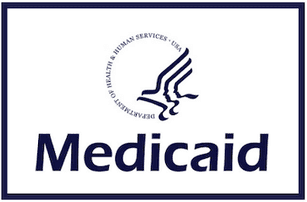


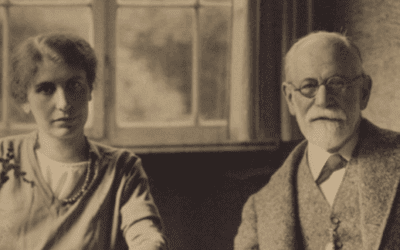
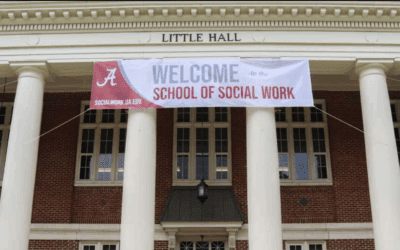






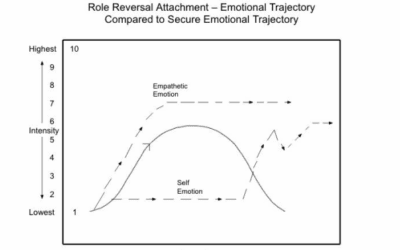











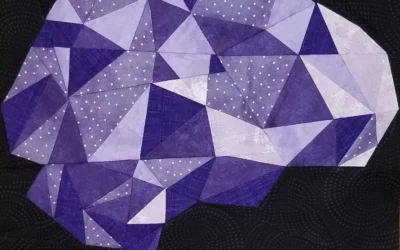
0 Comments